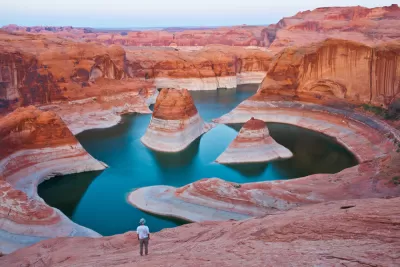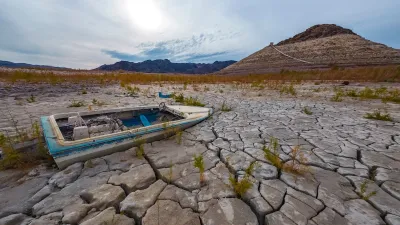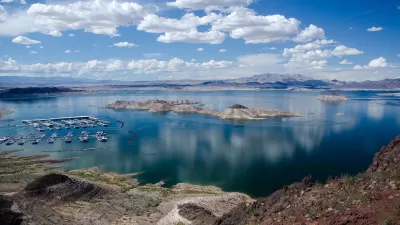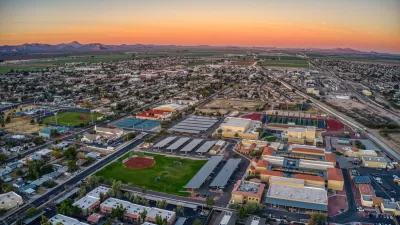Rivers are high and drought conditions have been lifted, but experts say that the 19-year drought in Colorado isn't over.

"Though 2019 has brought deep snowpack and heavy rain, we’re still in the midst of a 19-year drought that threatens waterways, landscapes, and communities throughout the West," writes Jay Bouchard.
One wet year doesn't resolve the long-term trend of water scarcity, according to the data and experts cited in article.
The long-term trend is this: Since the National Oceanic and Atmospheric Administration (NOAA) introduced the U.S. Drought Monitor in 2000, Colorado has been bone dry. There have been a handful of wet years, but Colorado has been in a near-constant state of drought—including almost eight straight years from 2001 to 2009.
Moreover, the challenges in Colorado have repercussions for all of the states and communities downstream of Colorado on the Colorado River—as is made obvious by the water levels in Lake Powell and Lake Mead.
A great challenge facing public officials is to educate the public, and rally around the idea of water conservation even in wet years.
FULL STORY: Why We Shouldn’t Be Celebrating the “End of Drought” in Colorado

Alabama: Trump Terminates Settlements for Black Communities Harmed By Raw Sewage
Trump deemed the landmark civil rights agreement “illegal DEI and environmental justice policy.”

Planetizen Federal Action Tracker
A weekly monitor of how Trump’s orders and actions are impacting planners and planning in America.

The 120 Year Old Tiny Home Villages That Sheltered San Francisco’s Earthquake Refugees
More than a century ago, San Francisco mobilized to house thousands of residents displaced by the 1906 earthquake. Could their strategy offer a model for the present?

In Both Crashes and Crime, Public Transportation is Far Safer than Driving
Contrary to popular assumptions, public transportation has far lower crash and crime rates than automobile travel. For safer communities, improve and encourage transit travel.

Report: Zoning Reforms Should Complement Nashville’s Ambitious Transit Plan
Without reform, restrictive zoning codes will limit the impact of the city’s planned transit expansion and could exclude some of the residents who depend on transit the most.

Judge Orders Release of Frozen IRA, IIJA Funding
The decision is a victory for environmental groups who charged that freezing funds for critical infrastructure and disaster response programs caused “real and irreparable harm” to communities.
Urban Design for Planners 1: Software Tools
This six-course series explores essential urban design concepts using open source software and equips planners with the tools they need to participate fully in the urban design process.
Planning for Universal Design
Learn the tools for implementing Universal Design in planning regulations.
Clanton & Associates, Inc.
Jessamine County Fiscal Court
Institute for Housing and Urban Development Studies (IHS)
City of Grandview
Harvard GSD Executive Education
Toledo-Lucas County Plan Commissions
Salt Lake City
NYU Wagner Graduate School of Public Service





























